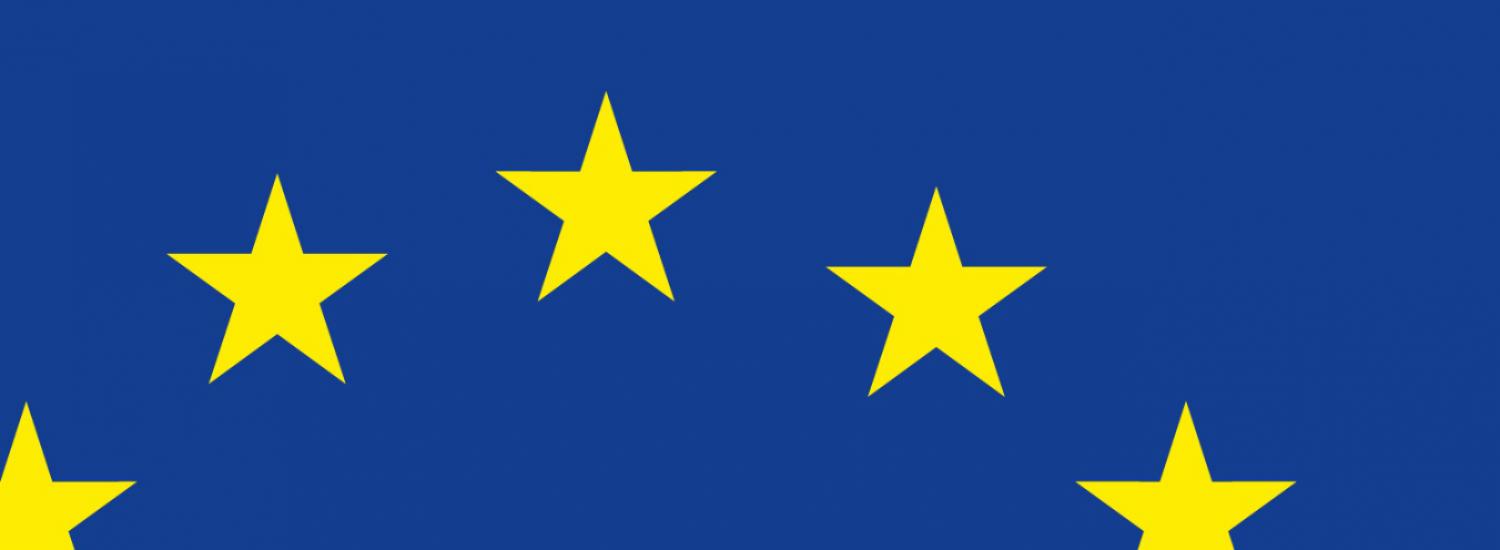The IP Group is active internationally in several European and International technical-political organizations, as well as operational and standards organizations and regularly takes on important roles. The IP Group is currently President of the European Region of the International Union of Railways (UIC), and participates in the development of innovative technical and operational standards for the road and rail transport sectors, and mobility in general.

- EIM - European Rail Infrastructure Managers
-

Founded in 2002, this lobbying association includes European rail infrastructure managers, representing the interests of independent infrastructure managers and contributing toward the development of the European Transport Policy and European Union legislation applicable to the railway sector. It has been mandated by the European Commission, since 2005, to provide experts for the European Union Agency for Railways Working Groups, responsible for technical interoperability and the safety of railway transport in Europe.
EIM aims to contribute toward developing the European Transport Policy and ensuring that Community legislation enables the:
-
Efficient use of existing infrastructure and the development of new infrastructure;
-
Efficient, economical and suitable implementation of the interoperability process;
-
Management of railway safety;
-
Development of new infrastructure;
-
Satisfaction of the needs of current and future rail operators.
-
- EUAR - European Union Agency for Railways
-
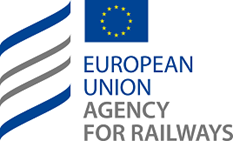
Created in 2004 by means of Regulation (EC) No 881/2004, the mission of this European Union Agency is to reinforce the Safety and Interoperability of European railways, providing the European Commission and Member States with technical support to promote the creation of a Single European Railway Area.
EUAR’s main functions include: reinforcing safety and interoperability for rail systems, based on a structure of working groups consisting of contracted technical staff and the engagement of technical experts, appointed by sector organizations that collaborate with ERA, including diverse staff from IP.
- CEDR - Conference of European Directors of Roads
-
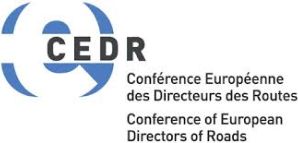
CEDR is a platform that includes national roadway authorities from 28 European countries, with a view to promoting cooperation and implementing improvements in the road system and the respective infrastructure, providing support and advice for decision-making processes concerning road transport. CEDR’s main missions include:
-
Contributing toward the future development of road networks and traffic;
-
Promoting an international network of contacts among European road managers;
-
Ensuring extensive involvement in European Union policies concerning road transport;
-
Promoting the implementation of best practices and the results of research that has been developed.
-
- PIARC - Permanent International Association of Road Congresses
-
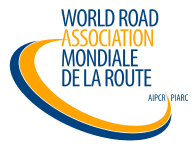
PIARC was founded in 1909, with a view to promoting international cooperation in the road transport and roadways sector. It currently has 120 members representing national governments and also includes other types of members: regional authorities, and collective, individual and honorary members.
The Association’s main missions include:
-
Constituting an international forum to analyze and discuss diverse themes relating to road transport;
-
Identifying, developing and disseminating examples of best practices and enabling better access to international information;
-
Developing and promoting efficient tools to aid decision-making in matters concerning road transport.
-
- PRIME - Platform of Rail Infrastructure Managers in Europe
-
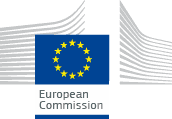
The Platform of Rail Infrastructure Managers in Europe (PRIME) includes diverse Infrastructure Managers and DG-MOVE. It was created pursuant to a European Commission proposal, with a view to promoting cooperation in key areas to develop a safe, sustainable, high-performance and value-added European rail network. IP is one of the founding members of the Platform.
PRIME is the only platform that enables direct interaction between the European Commission and rail infrastructure managers, promoting timely discussions on legislative initiatives and closer cooperation among railway companies.
Companies that are part of PRIME are invited to discuss the key challenges for managing rail infrastructure in Europe, namely: funding infrastructure, railway safety, inter-modality and co-modality, as well as promoting computerization.
- ERRAC - The European Rail Research Advisory Council
-
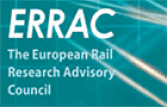
ERRAC was created in 2001 with a view to constituting a single European body with the competence and capacity to contribute toward revitalizing the railway sector in Europe, by promoting innovation and coordinating research efforts. The organization includes representatives from the main stakeholders linked to railway research in Europe, including builders, infrastructure managers, operators, universities and consumer associations. ERRAC’s mission includes:
-
Defining and implementing a joint strategy for research and innovation in the rail sector;
-
Promoting collaboration among diverse stakeholders involved in the process, namely by launching ambitious plans for cooperation in the field of research;
-
Leveraging synergies between European, national and private research and innovation;
-
Coordinating financial, material and human resources dedicated to railway research.
-
- ERTRAC - European Road Transport Research Advisory Council
-
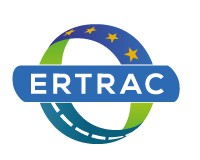
ERTRAC is the European Technology Platform (ETP) for Road Transport and its members include the main stakeholders linked to the road sector in Europe (Member States, EU Candidate Countries and Associate States): European Union institutions and national bodies, public and private entities involved in research, associations, companies and universities, among others. ERTRAC’s main missions include:
-
Promoting a strategic European vision for research and innovation in the road sector;
-
Defining and updating the Strategic Research Agenda and providing support for the process of implementing the ‘Horizon 2020’ European Community program;
-
Stimulating public and private investment in research and innovation for the road sector;
-
Promoting exchanges of experience and know-how, as well as encouraging ‘clusters’ of European research and innovation capacities;
-
Contributing toward better coordination among European, national and regional entities involved in road transport.
-
- Shift2Rail
-

Shift2Rail is the first integrated European initiative aimed at promoting Research, Development and Innovation, by identifying market-oriented solutions and increasing the integration of technologies that enable the implementation of innovative solutions in the rail sector. The implementation of Shift2Rail represents an unprecedented effort by stakeholders in the European rail sector, with a view to:
-
Reinforcing the attractiveness of rail transport for passengers and goods;
-
Achieving the ambitious objectives set out in the ‘White Paper on Transport – 2011’, published by the European Commission;
-
Increasing the competitiveness of the European rail industry in light of growing competition at a global level;
-
Creating and maintaining high-quality jobs in Europe.
-
- EUROC - European Rail Operating Community Consortium
-
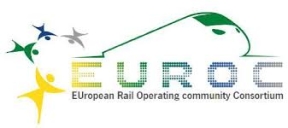
This is the European Infrastructure Managers and Rail Operators Consortium promoted by ten European railway companies, including IP. In December 2015 this consortium was accepted as an Associate Member of the Shift2Rail Joint Undertaking (S2R JU).
The participation of the diverse railway companies in this consortium enabled it to be part of the aforesaid S2R JU, pursuant to the conditions defined in the European Community law establishing the joint undertaking - Regulation (EU) No 642/2014 – allowing coordinated intervention in all Innovation Programs and minimizing the financial effort necessary for this purpose.
The participation of IP and CP in the EUROC Consortium and in the Research, Development & Innovation (RD&I) projects developed under S2R JU makes it possible to leverage national capacities and competences in the National Scientific System and in railway technology companies, thus promoting the development of knowledge and providing access to a market for the solutions and technological products developed therein.
- UIC - Union Internationale des Chemins de Fer
-
Founded in 1922 with a view to creating uniform conditions for railway activities, UIC is the most relevant global organization for cooperation among railway companies. Portugal was one of the founding nations of the Association.
UIC has a broad scope of activities, with specific emphasis on technical aspects, benefiting public and private operators as well as infrastructure managers, integrated companies and other entities involved with the rail sector. It currently has about 200 members and encompasses the most diverse themes relating to rail activities, from safety to logistics, including signaling and the transportation of passengers and goods.
UIC’s main missions include:
-
Promoting cooperation among railway companies, so as to develop international rail transport;
-
Maintaining and developing the coherence and interoperability of the railway system, with a view to improving its competitiveness;
-
Preparing common positions for promoting rail transport;
-
Disseminating advanced technologies and management methods.
-
- RNE - Rail Net Europe
-

Founded in 2002, it includes 35 railway infrastructure managers and bodies responsible for allocating rail capacity in 26 European nations. RNE’s mission is to establish means of international cooperation for selling rail path requests, managing supply for international channels and organizing a marketing model for rail infrastructure capacity. Promoting integrated intervention in the area of cross-border rail operations, this association’s main objectives include:
-
Increasing rail traffic in the European network;
-
Providing quick and easy access to European rail infrastructure;
-
Improving the quality of the services provided;
-
Improving the efficiency of the processes for establishing timetables and operations.
-
- European Freight Corridors Atlantic Corridor
-
The Atlantic Corridor, initially known as Freight Corridor 4, aims to promote rail freight transport among the rail networks of Portugal, Spain, France and Germany. The corridor specifically encompasses the following routes: Sines / Setúbal / Lisbon / Aveiro / Leixões - Algeciras / Madrid / Bilbao / Zaragoza - Bordeaux / La Rochelle / Nantes / Paris / Le Havre / Metz / Strasbourg - Mannheim.
The Atlantic Corridor’s mission is to make the most of existing rail infrastructure, without additional investments, by means of the centralized management of capacity allocation, traffic management and client relations. It is also a privileged platform for coordinating investments in the infrastructure of the four networks, so as to eliminate technical and operational barriers and promote the competitiveness of rail transport.
- CEN - Comité Européen de Normalisation
-
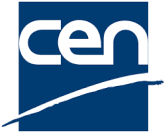
This international body was founded in 1961, encompassing the national standardization entities in each Member State of what was at the time the European Economic Community (EEC) and the European Free Trade Association (EFTA). In addition to EU Member States, CEN includes, as affiliate members, the standardization bodies of EU Candidate Countries, the various republics of the former Soviet Union and those of diverse nations in North Africa and the Middle East.
CEN is an independent, non-profit technical and scientific organization that carries out its activities alongside the European Committee for Electrotechnical Standardization (CENELEC) and the International Organization for Standards (ISO). CEN’s mission is to prepare European technical standards, which users implement voluntarily. This process is undertaken in coordination with other standardization bodies at a European and international level.
- CENELEC - Comité Européen de Normalisation Électrotechnique
-
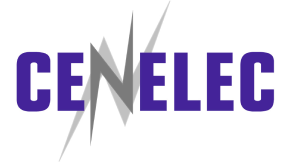
CENELEC was created in 1973, and is the European body responsible for standardization in the field of electrotechnical engineering. Working alongside CEN, this body prepares voluntary standards that help expand the common market in the electrotechnical field.
CENELEC prepares European standards, as well as standards with an international scope, in collaboration with IEC - International Electrotechnical Commission.
The initiative for planning and preparing the standards lies, essentially, with industrial interlocutors and can also be set in motion by small and medium enterprises, associations, citizens or legislators.
This body currently encompasses 33 European nations, which participate via their respective National Electrotechnical Commissions. In addition to members from the European Union and EFTA, CENELEC also includes the participation, as affiliate members, of the standardization bodies of EU Candidate Countries, the various republics of the former Soviet Union and those of diverse nations in North Africa and the Middle East.
- ISO - International Organization for Standardization
-

ISO is a non-governmental international body that encompasses 161 national standardization entities. Through its internal structures, ISO promotes the sharing of knowledge among its members and prepares international standards that can be implemented voluntarily.
Since it was created in 1947, ISO has already published more than 19,000 international standards and the associated documentation, spanning the most diverse areas of activity, ranging from Information Technology to Food Safety, including the pharmaceutical industry and the transport sector.
ISO has three types of members:
-
Active members: participate in the process of preparing the ISO standards and strategy;
-
Correspondent members: have the status of observers and do not intervene in the preparation of the standards or ISO’s organizational strategy;
-
Subscriber members: only accompany ISO’s activities and are not involved in its ongoing activities.
-
- CEEP - European Centre of Employers and Enterprises providing Public Services and Services of General Interest
-
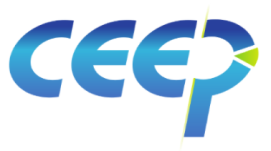
CEEP is a European association representing companies that provide services of general interest, irrespective of their ownership or status. CEEP is one of the three general inter-professional social partners (BUSINESSEUROPE and CEEP as employer associations and CES as a union) at a European level, recognized by the European Commission. It represents employers providing public services and services of general interest in European Social Dialogue.
The association and its Secretary-General represent the interests of its members in relation to EU institutions. By means of contacts with European institutions, such as the European Commission, the European Parliament, the European Economic and Social Committee (EESC) and the European Committee of the Regions, CEEP is consulted with regard to projects for EU legislation that is pertinent for the activities of its members. The association sends representatives and observers to committees and advisory bodies of European institutions and can thus keep its members updated with regard to the most recent developments at a European level that may be of interest to them.
- AEVV - Association Européenne des Voies Vertes
-

AEVV was founded in 1998, after the First European Conference on Soft Traffic and Railways Paths. This association currently includes about 50 members from 16 European nations. Its main objective is to contribute toward preserving infrastructure (such as disused rail lines, canal tow paths and cultural itineraries), with a view to establishing non-motorized leisure routes. Furthermore, AEVV also seeks to:
-
Promote the use of eco-friendly means of transport;
-
Promote and coordinate the exchange of expertise and information;
-
Collaborate with European authorities with regard to sustainable development;
-
Contribute toward promoting environmental protection, regional balance and employment.
-
- ETCR - European Training Centre for Railways
-

Since 1963, ETCR has organized an annual seminar spanning two weeks at the College of Europe in the Belgian city of Bruges, with a view to providing training for the technical staff of European railway companies enabling them to learn and discuss relevant and current aspects relating to rail transport in Europe in an international context. Among other topics, this seminar examines:
-
European integration in a historical context;
-
Rail transport in Europe;
-
The Trans-European Transport Network and multimodal corridors;
-
The point of view of other modes of transport and railway customers.
-
